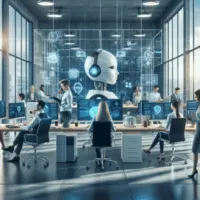Modern workplaces are in the midst of a transformation. While chatbots made a splash by answering simple queries, there’s a new wave redefining how we work: AI agents. These intelligent assistants go far beyond basic conversations, shaping workflows, automating complex tasks, and fueling productivity in unprecedented ways.
As businesses strive to do more with less, understanding how AI agents operate is quickly becoming essential for anyone hoping to stay ahead of the curve.
The Leap from Chatbots to AI Agents
Most people are familiar with chatbots those helpful pop-ups on websites answering your questions or guiding you to support articles.
But as useful as they are, their abilities are limited to predefined scripts and narrow interactions.
AI agents, however, are a different breed. They leverage advanced machine learning, natural language processing, and decision-making frameworks to understand context and actively participate in tasks that traditionally required human intervention.
Key Differences Between Chatbots and AI Agents
- Chatbots follow scripted responses while AI agents can adapt, learn from interactions, and handle more complex requests.
- AI agents manage multi-step processes, like organizing schedules, analyzing documents, or even negotiating with other systems.
- Unlike simple bots, AI agents can draw from multiple data sources to make autonomous decisions.
This evolution means AI agents don’t just answer questions they empower users to get real work done, faster.
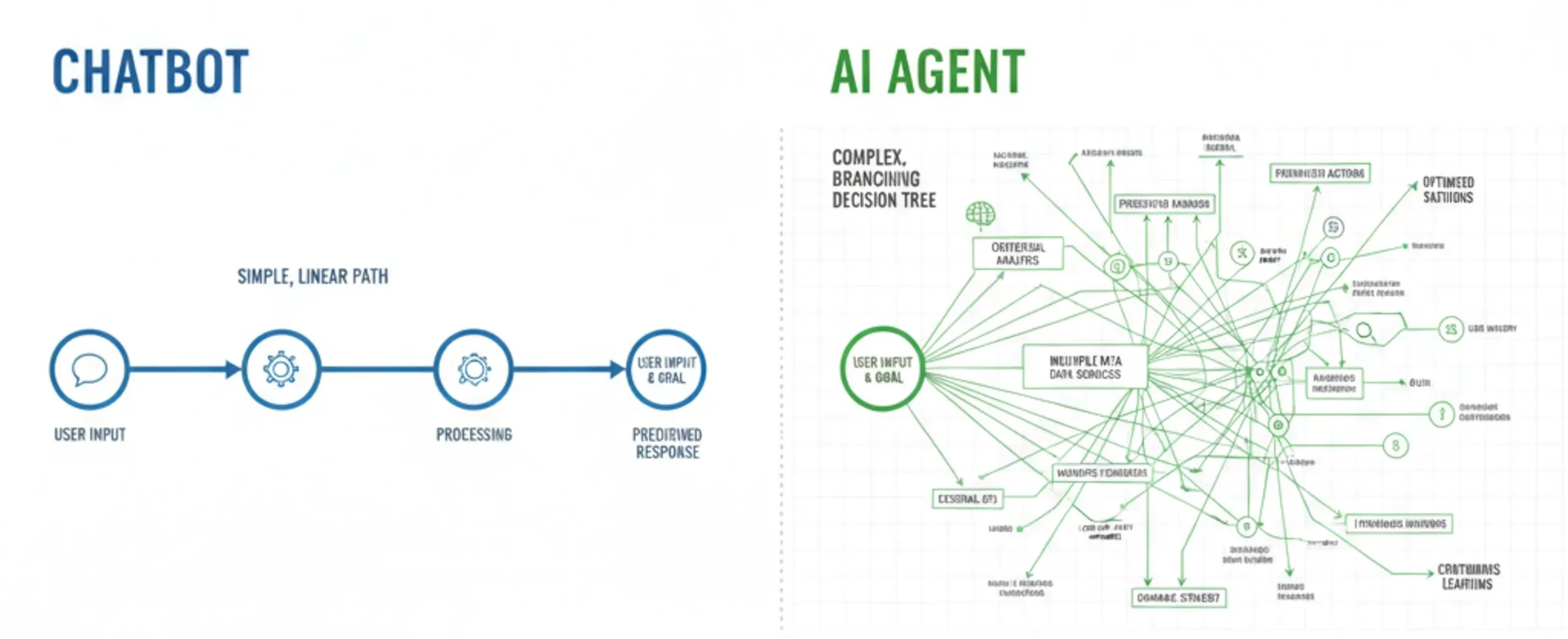
The Productivity Revolution: How AI Agents Boost Efficiency
AI agents are transforming productivity by redefining how, when, and who does the work. Instead of spending time on repetitive tasks, teams can delegate those to AI agents and focus on strategic priorities.
Automating Routine Tasks
Many professionals lose hours to routine work scheduling meetings, managing emails, or synthesizing data from different platforms.
AI agents can:
- Automatically triage and respond to emails
- Schedule, reschedule, or find optimal times for meetings
- Aggregate data from disparate sources into actionable reports
Enabling Seamless Collaboration
AI agents work around the clock. They can:
- Coordinate tasks between departments, ensuring deadlines are met without manual intervention
- Integrate with project management tools, updating statuses or following up on deliverables
- Serve as knowledge hubs, surfacing relevant information as teammates need it
This consistent support reduces friction and accelerates project timelines.

Personalized Workflows: Tailoring AI Agents to Your Needs
No two organizations work the same way. That’s why AI agents are designed to be highly customizable, adapting to unique business processes and user preferences.
Learning Over Time
Unlike rule-based software, AI agents analyze user behavior and feedback to optimize their support. For example:
- If a sales team prefers weekly pipeline summaries in a specific format, the AI agent will learn to deliver that exact report.
- In HR, AI agents can tailor onboarding checklists based on department and role, streamlining the new hire experience.
Customization means each team, and even each individual, can extract the maximum benefit from AI agents.
Real-World Use Cases for AI Agents
To grasp the transformative power of AI agents, let’s explore practical scenarios where they’re making an impact.
Customer Support
AI agents go beyond chatbots by resolving support tickets end-to-end. They can:
- Identify and categorize support requests
- Fetch relevant knowledge base articles
- Escalate complex issues to humans with detailed context
- Follow up with customers after resolution
This results in faster resolutions and higher customer satisfaction.
Finance and Accounting
Numbers-driven teams harness AI agents to:
- Process invoices automatically
- Flag suspicious transactions using anomaly detection
- Prepare quarterly financial summaries
- Guide compliance processes, minimizing errors
AI agents minimize manual effort and reduce costly mistakes.
Sales and Marketing
AI agents in sales can:
- Qualify leads by analyzing incoming requests and online behavior
- Schedule calls and demonstrations without human input
- Track interactions and provide next-step recommendations
Marketing teams benefit from AI agents that segment audiences, personalize campaigns, and even generate first drafts of outreach content.
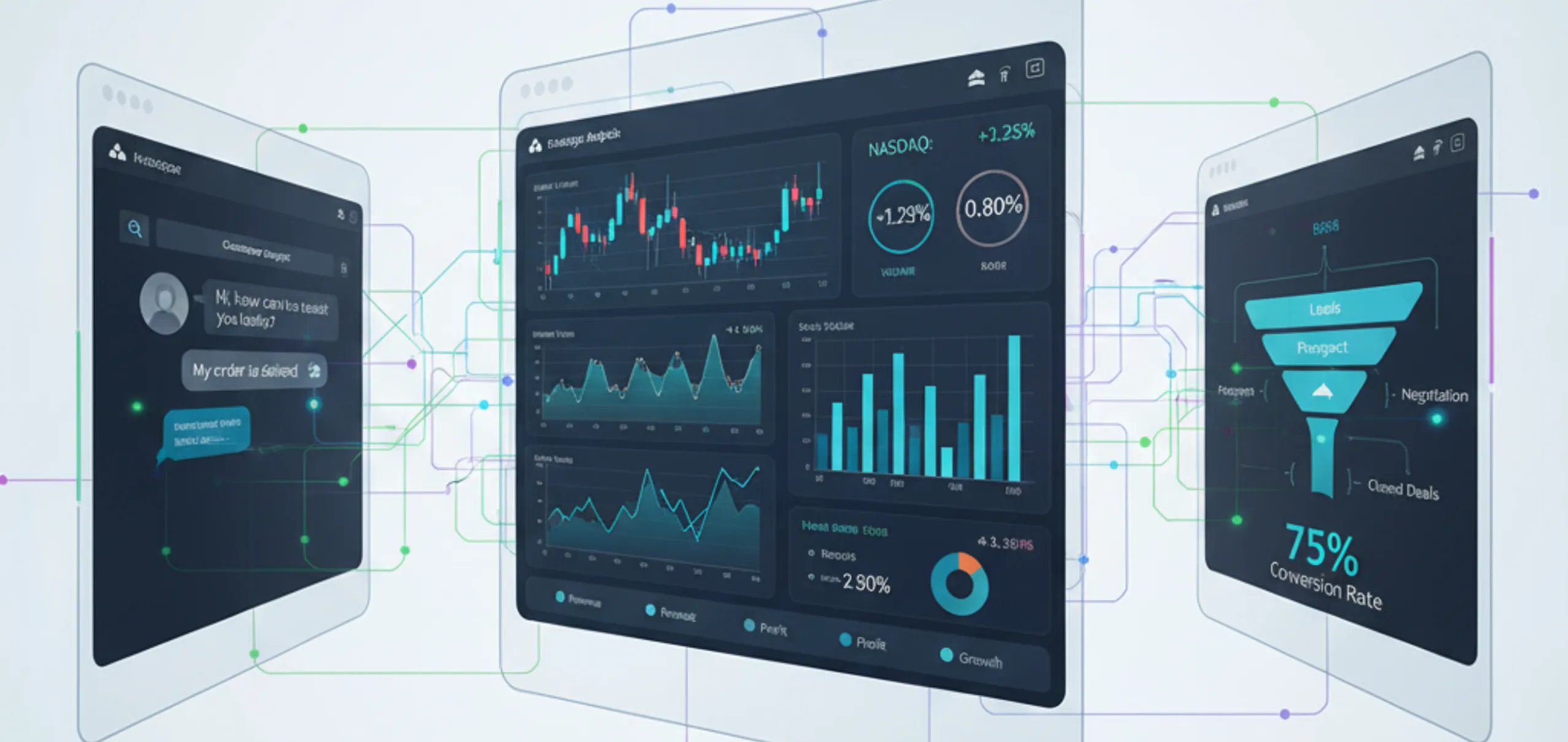
The Advantages of Implementing AI Agents
It’s not just about saving time AI agents bring a range of benefits that set them apart from older technologies.
- Scalability
AI agents perform tasks at any scale, from helping a single professional juggle projects to supporting thousands of employees across a global enterprise. Unlike humans, they don’t get tired or overwhelmed.
- Accuracy and Consistency
AI agents reduce manual errors by applying the same rules and logic in every interaction. This is especially crucial in industries like healthcare, finance, and legal services, where even a small error can have major repercussions.
- Cost Savings
By automating repetitive tasks, businesses can streamline operations and redeploy human talent toward high-value work. With fewer bottlenecks and errors, operational costs drop, and ROI increases.
- Enhanced Decision-Making
AI agents have access to vast data sets and can provide insights on trends, risks, or opportunities that might be missed by human analysts alone.
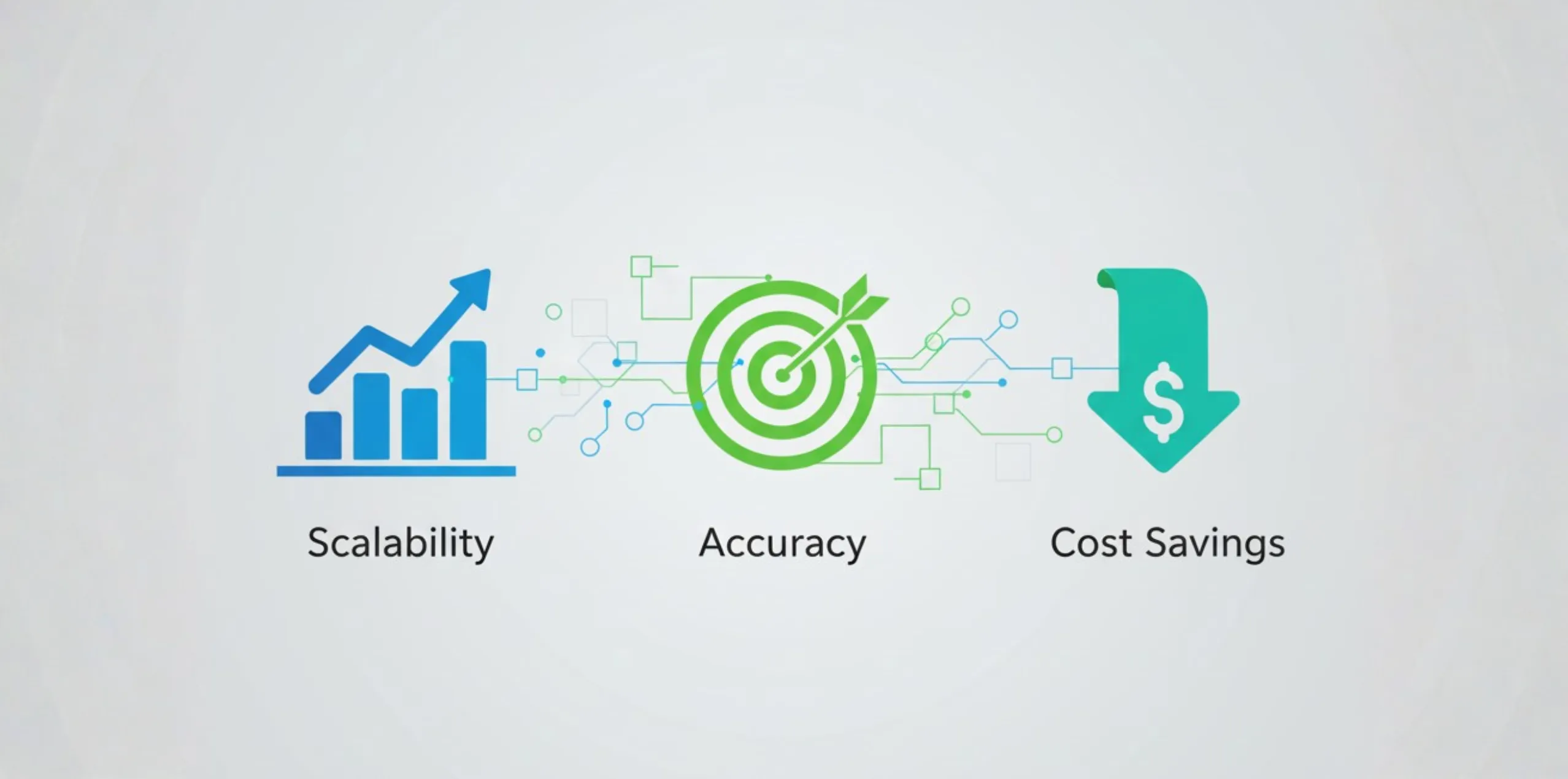
Challenges and How to Overcome Them
While the promise of AI agents is clear, their adoption does come with challenges. Recognizing and addressing these hurdles is essential for success.
- Integration with Existing Systems
Many legacy systems aren’t designed to accommodate AI agents out of the box. Close collaboration between IT and AI partners is needed to ensure smooth integration and data flow.
- Data Privacy and Security
AI agents handle sensitive information. Organizations must implement strong data governance policies, utilizing encryption, access controls, and compliance checks.
- User Trust and Training
Employees may be wary of AI agents taking over key tasks. Transparency about how AI agents work and focused training are critical for building trust and encouraging adoption.

The Future Outlook: AI Agents and the New World of Work
The AI agents revolution is just beginning. As their capabilities expand, we’ll see agents taking on more sophisticated roles, even collaborating with each other to solve complex, multi-dimensional problems.
Human-AI Collaboration
Rather than replacing humans, AI agents act as force multipliers, allowing people to focus on creative, empathetic, and strategic endeavors.
Continuous Evolution
AI agents are built to learn and improve. Innovations in large language models and reinforcement learning will enable future agents to:
- Anticipate needs before users ask
- Work seamlessly across devices and platforms
- Handle higher-level decision-making with confidence
Staying updated with the latest AI advances is no longer optional for any forward-thinking business leader. For reputable research and industry trends, resources like the MIT Technology Review offer in-depth analysis on the evolving role of AI in work environments.
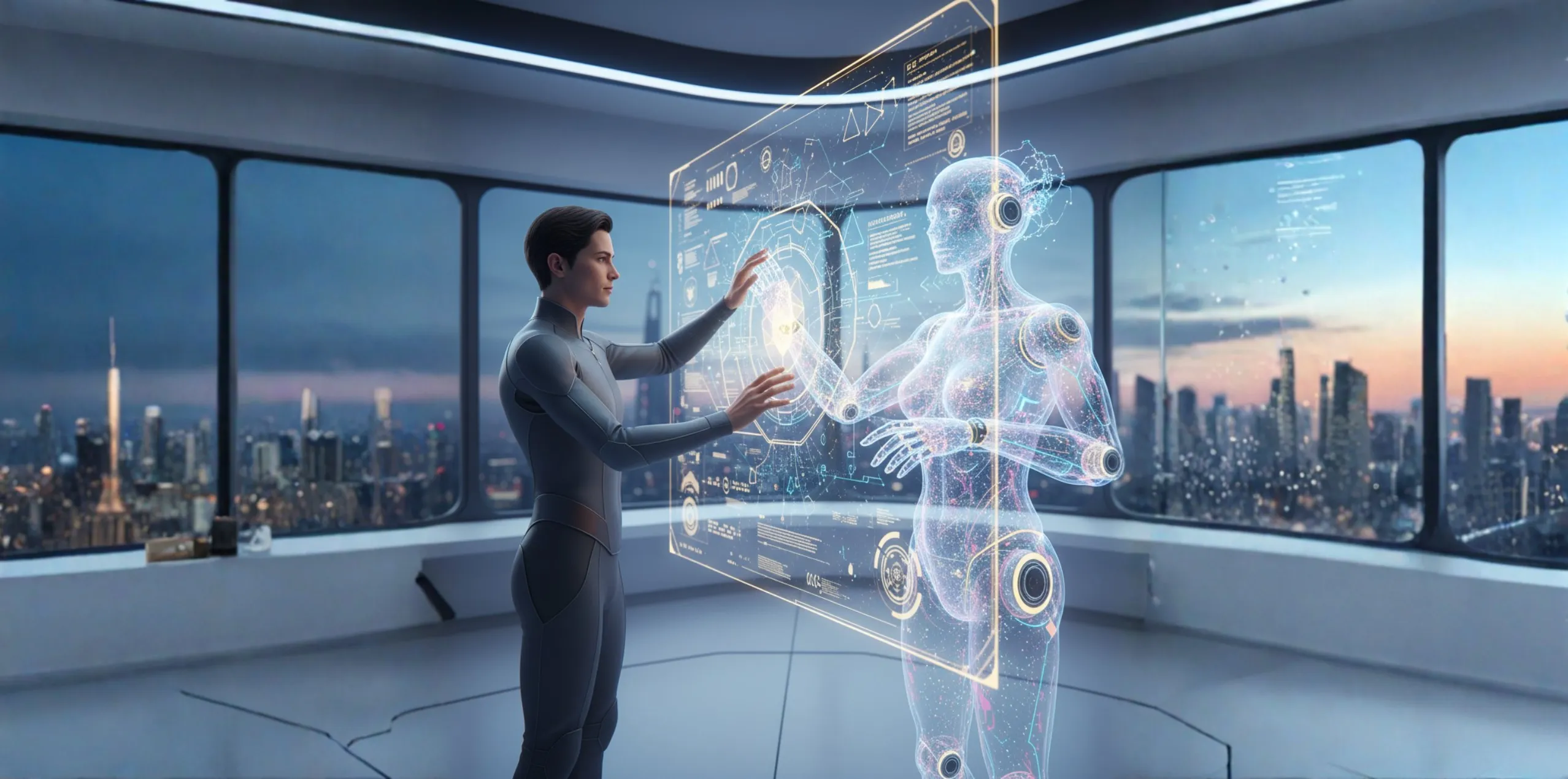
Getting Started with AI Agents in Your Organization
Bringing AI agents into your workflow doesn’t require a complete overhaul. Here are some practical steps to begin the journey:
- Identify high-volume, repetitive tasks ripe for automation.
- Evaluate AI agent solutions that integrate smoothly with your existing ecosystem.
- Start with a pilot project, focusing on a single department or process.
- Gather feedback from users and adjust workflows as you scale.
- Prioritize employee training to maximize adoption and success.
Remember, the key is to view AI agents as partners tools that help teams reach new heights rather than just replace old ways.
As enterprises around the globe embrace the shift, those who leverage AI agents effectively will find themselves at the forefront of productivity, innovation, and growth. The future of work is no longer just about working harder, but smarter, with AI agents leading the way.
Ready to discover how AI agents can transform your organization’s productivity? For more insights or collaboration opportunities
Yes AI
Tel. : 096-879-5445
LINE : @yeswebdesign
E-mail : info@yeswebdesignstudio.com
Address : 17th Floor, Wittayakit Building, Phayathai Rd, Wang Mai, Pathum Wan, Bangkok 10330 (BTS SIAM STATION)
